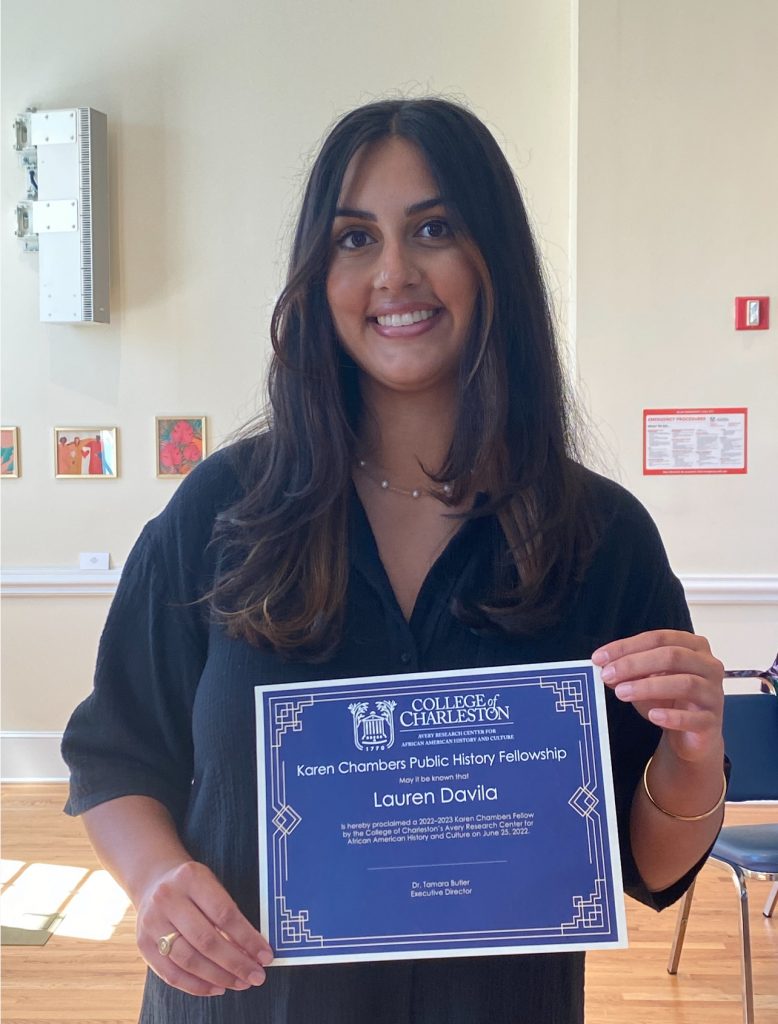» Unveiling the Legacy of Avery: Lauren Davila
While an MA student in public history at the College of Charleston, I discovered the largest sale of enslaved people of the domestic slave trade in the United States, which occurred in 1834 in Charleston, SC. Realizing the gravity of this discovery, I planned on exploring the topic in my thesis, where I aimed to explore the lives of the slave traders who facilitated the sale. During the year I spent researching and writing my thesis, I received the Karen Chambers Public History Fellowship through Avery Research Center, allowing me to conduct crucial research I otherwise might not have had the opportunity to complete. After the successful defense of my thesis, I returned to Avery to present my research, allowing me a chance to connect with others who had supported this work throughout the entire process.
The following year, I had a unique opportunity to join the Black and Brown Interpreters Network at Avery as a founding member, where we explored various heritage sites in the Charleston area, allowing us to cultivate community while also developing our understanding of new (and familiar!) historic sites.
After finishing my time at the College of Charleston as an adjunct professor of history in 2024, I accepted an offer from Tulane University in New Orleans, LA, where I currently study history as a PhD student. My research interests are in 19th century slavery and the slave trade, and in my dissertation hope to explore the lives of those enslaved people from the 1834 Ball estate sale who were sold to other locations outside of Charleston. In October of 2024, I returned to Charleston to unveil a plaque erected at 24 Broad Street, the former office location of the slave traders who facilitated the sale. I am also involved in other public history work for History Channel online, where I have published several pieces from topics such as slave auctions of the domestic slave trade, to the life of Sally Hemings.
The Avery Research Center has granted me so many special opportunities in the field during my time spent in Charleston! I am filled with pride thinking of the important work Avery continues to support, and I am so grateful to them for fostering my love of African American history.


